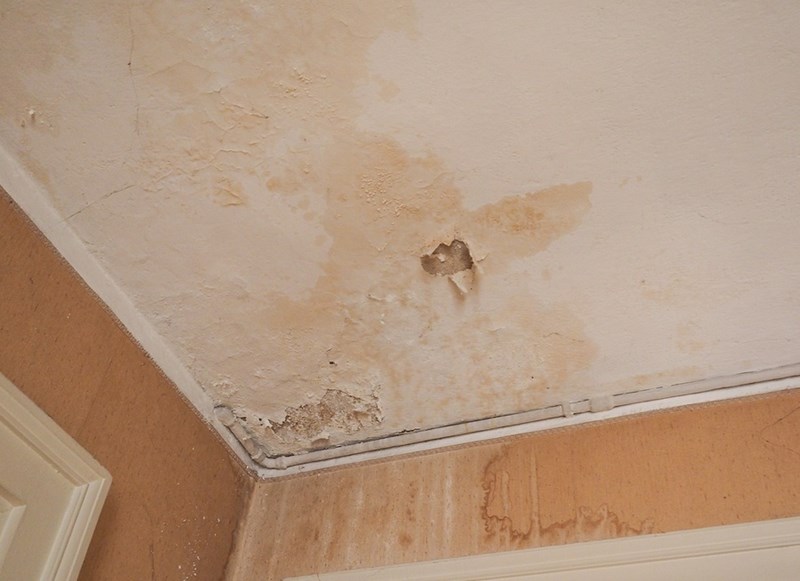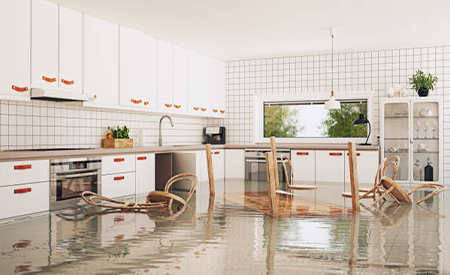The Process of Water Damages Cleaning: Guaranteeing Your Home Is Brought Back Successfully
Water damage can be a difficult challenge for property owners, necessitating a careful and organized clean-up process to restore safety and functionality. Originally, a thorough analysis is critical to recognize the degree of the damage and identify the appropriate removal measures. Following this, effective water removal methods play a critical role in alleviating additional harm. Nonetheless, the nuances of drying, sterilizing, and eventual restoration are similarly vital and typically neglected. Comprehending these stages can make a substantial difference in the end result of your home's restoration, prompting a closer take a look at what each step involves.
Examining the Damages
Upon discovering water damages, the very first step is to thoroughly evaluate the degree of the impact. This first analysis is essential, as it assists figure out the needed actions for effective cleanup and remediation. Begin by checking the impacted locations, consisting of wall surfaces, ceilings, floorings, and personal items, to identify the source of the water intrusion, whether from flooding, leaks, or condensation.
Documenting the damage is crucial for both insurance claims and planning reconstruction efforts - damage restoration services. Use photographs and composed notes to catch the seriousness of the damage, noting any kind of damaged architectural components and products. Pay special attention to areas that may not be right away visible, such as behind walls and under carpetings, as concealed dampness can bring about more difficulties, including mold and mildew growth
In addition, evaluate the timeline of the water exposure. The longer the materials stay wet, the better the possibility for damage. Recognizing the duration of direct exposure will inform the urgency of removal initiatives. Inevitably, a comprehensive analysis prepares for a successful water damages cleaning procedure, guaranteeing that all affected locations are addressed efficiently and thoroughly.
Water Removal Techniques

Experts typically utilize completely submersible pumps for larger volumes of water, which can promptly ease flooding in cellars or various other impacted locations. For smaller sized quantities, wet/dry vacuums are commonly used to draw out recurring moisture from carpets and hard surface areas. In addition, using portable extractors permits targeted removal in constrained spaces or areas with delicate products.
In circumstances of contaminated water, such as sewer or floodwater, progressed removal strategies may involve using biohazard devices to make certain safety and security and compliance with health and wellness regulations. High-powered removal devices are critical in reducing water retention in structural materials, which can bring about mold development and architectural deterioration if not addressed without delay.
Ultimately, the effectiveness of water removal strategies plays a pivotal role in the general success of the water damage cleanup process, preparing for subsequent remediation efforts.
Drying and Dehumidification
Once standing water has actually been effectively drawn out, the next crucial phase in the water damage cleaning process is drying out and dehumidification. This action is important to protect against more damages and mold and mildew development, which can happen within 24 to 48 hours in damp environments.
To achieve reliable drying out, specific equipment such as industrial-grade air moving companies and dehumidifiers is employed. Air moving companies circulate air throughout damp surfaces, improving evaporation prices, while dehumidifiers decrease humidity degrees airborne, promoting a conducive setting for drying. The combination of these devices ensures that dampness is drawn out from wall surfaces, floorings, and furnishings, allowing them to completely dry thoroughly.
It is very important to monitor the drying out procedure carefully. Specialists often use wetness meters to assess the wetness web content in different products, making certain that all impacted locations reach appropriate dryness degrees. This meticulous technique aids to stop concealed dampness pockets that could cause structural a knockout post damage or undesirable mold growth.

Cleansing and Sanitizing
After the drying and dehumidification stage is complete, the next important action in water damages cleaning is cleaning up and disinfecting the impacted locations. This process is crucial to protect against the growth of mold, microorganisms, and various other microorganisms that grow in moist environments.
The cleaning stage normally includes removing any particles, dust, and pollutants from surfaces using specialized cleansing agents. For difficult surfaces, a mix of soap and water or industrial cleaning items is frequently utilized. Soft materials, such as furniture and rugs, might need extra considerable cleansing approaches, including heavy steam cleansing or deep extraction methods, to make certain extensive sanitation.

Sterilizing complies with cleansing, utilizing EPA-approved disinfectants to remove harmful bacteria. This action is crucial, specifically in locations that might have entered contact with floodwaters or sewer, as these resources can posture major wellness threats.
Additionally, it is essential to deal with any kind of continuing to be odors, which might need using smell neutralizers or innovative techniques like ozone therapy. Proper cleaning and sanitizing not only recover the safety and health of your home yet likewise prepared for effective remediation and repair services in subsequent stages of the water damage cleanup procedure.
Remediation and Repair Services

Once the assessment is full, remediation efforts can begin. In addition, floor covering might require similar attention, depending on the degree of water exposure.
It is essential to engage knowledgeable repair professionals throughout this procedure, as they have the experience to take care of complex repair work efficiently. In addition, they can assist mitigate potential future problems, such as mold and mildew development or architectural instability, therefore ensuring a safe and habitable living environment. Ultimately, efficient remediation and repair work recover the home's integrity and improve its overall value.
Conclusion
In verdict, the procedure of water damages clean-up is essential for recovering a home to its pre-damage problem. Each phase, from assessing the damage to carrying out effective water removal methods, complied with by complete drying, disinfecting, and required repairs, plays a necessary duty in guaranteeing safety and security and compliance with building requirements. Effective execution of these actions not just reduces immediate damage yet also improves the lasting integrity and value of the residential property.
Water damage can be a difficult challenge for property owners, requiring a organized and careful cleaning process to restore safety and performance. Eventually, a thorough assessment lays the groundwork for a successful water damage cleaning procedure, ensuring that all affected areas are attended to properly and extensively.
Reliable water removal methods are necessary in minimizing damages and protecting against further issues complying with a water invasion occasion.In final thought, the process of water damages clean-up is vital for bring back a home to its pre-damage condition. Each phase, from evaluating the damages to applying efficient water extraction strategies, followed by detailed drying out, sanitizing, and necessary fixings, plays a necessary duty in making sure safety and conformity with structure standards.